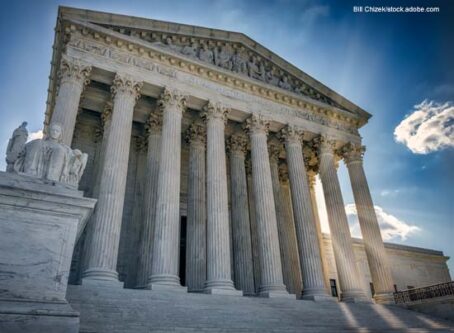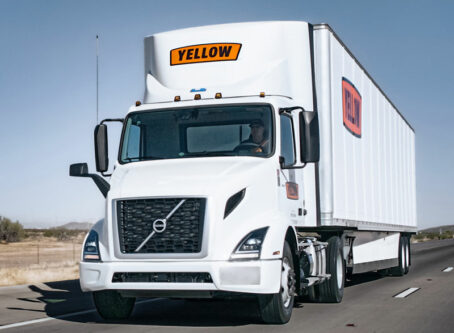The Trucking Alliance polishes its halo
Boy, am I tired of the saintly Trucking Alliance.
Officially calling themselves the Alliance for Driver Safety and Security, the group recently emerged, halos intact, for a second time asking the FMCSA’s Drug and Alcohol Clearinghouse to accept hair-based drug testing results from its members who use hair testing along with mandatory urine testing.
It’s kind of a half-measure for the Trucking Alliance. They really want a federal hair testing mandate, and they’re working on that. Meanwhile, they don’t want other carriers to hire drivers who fail hair tests at J.B. Hunt, Knight-Swift or other Alliance members.
For a second time, the FMCSA said no, but as a matter of bureaucratic jurisdiction, not on the questionable merits of hair testing itself. Other carriers can still hire drivers who pass urine tests even if they failed hair tests at an Alliance carrier.
Trucking Alliance members don’t like that. They believe a driver who shared a joint with an old friend over the kitchen table weeks ago is a failed human being steeped in debauchery, a chronic drug addict who can’t be trusted with life or property, at least until their hair grows out – even if that driver never drove while under the influence.
In simple playground terms, if the Alliance can’t have ’em, nobody can. And that, more or less, is what the Alliance is all about. They should really be called the Really Big Carrier Trucking Alliance, which better reflects who they are. The Alliance’s nine members include four of the top seven truckload fleets in North America.
In the names of public benefit and safety
“In 2023, we will achieve our goal, and employers will know the names of truck drivers who fail a hair drug test, just like we achieved with ELD mandates, creating the Clearinghouse, and other safety reforms we’re working on. The public deserves no less,” said an attorney for the Trucking Alliance.
Are we really supposed to believe these guys set up a D.C. lobbying operation for the benefit of the public? Funny how virtually every stated goal of the alliance would place burdens on smaller carriers. I guess we’re supposed to believe it’s all a coincidence.
But let’s talk about that signature Trucking Alliance achievement, the ELD mandate. It is how the Alliance got its start.
In the 1990s, Werner Enterprises (not an alliance member) became the first truckload giant to deploy an early version of ELDs across its fleet. ELDs were coming to the industry, that was clear. But would they arrive in trucking across the board? Or would smaller carriers without ELDs use the hours-of-service cushion provided by log books to a competitive advantage?
In 2009, a senator from Arkansas – home of J.B. Hunt, the biggest truckload and intermodal carrier of them all – championed a law that would require the FMCSA to mandate ELDs. It was all about –What’s the magic word, class? That’s right, safety.
But the ELD misgivings of many truckers have turned out to be valid. The unforgiving constraints of ELDs cause some mileage-pay drivers to drive faster during their legal hours, often on non-Interstate roads and even truckstop parking lots.
ELDs have also changed the nature of driver coercion. Carriers still push drivers, but with ELDs strictly limiting total hours, those hours-of-service maximums are now viewed as workday minimums. Drivers are expected to be on duty, preferably driving, every minute of their legally available hours. Stops – even for rest – are discouraged, sometimes quite blatantly. Dispatchers sometimes wake sleeping drivers to get them back on the road.
So, since the ELD mandate, crashes have actually increased. Oh yeah, ELDs have provided lots of benefits to carriers – particularly big carriers. It’s just that safety isn’t one of them.
Being a legal option would create problems
So, what about hair testing? It doesn’t have to be mandatory to cause problems. It only has to be a legal testing alternative. Then, hair testing results can be entered into the FMCSA’s Drug and Alcohol Clearinghouse. Those who fail hair testing will be virtually unemployable as drivers anywhere else. That could be a good number of drivers.
The Trucking Alliance says that in 2021 their nine members tested 88,021 drivers using both the urine test required by FMCSA and hair testing they do on their own. According to them, 403 drivers flunked the urine test while a whopping 4,362 failed the hair test – more than 10 times more failures. Impressive difference and reason enough for the FMCSA to recognize hair testing results, says the Alliance.
But here’s a problem: Trucking Alliance numbers reveal drug test results do not reflect the safety experience of the tested drivers nor of the fleets that turned them away. Are hair testing fleets safer as a result of hair testing? Are they safer than fleets that do not require hair testing?
I’d love to know the answers, but we’re unlikely to find out.
Hair testing blacklist
Meanwhile, the alliance presses ahead on its quest. If it wins, the biggest truckload carriers will effectively disqualify many good drivers, not just for their fleets, but for the whole industry.
It’s unfair to carriers without the wide-bore driver-recruiting pipelines big carriers have. It’s even worse for the thousands of applicants who won’t get the opportunity for a career they might just love.
And all for a safety benefit that may not even exist. LL









